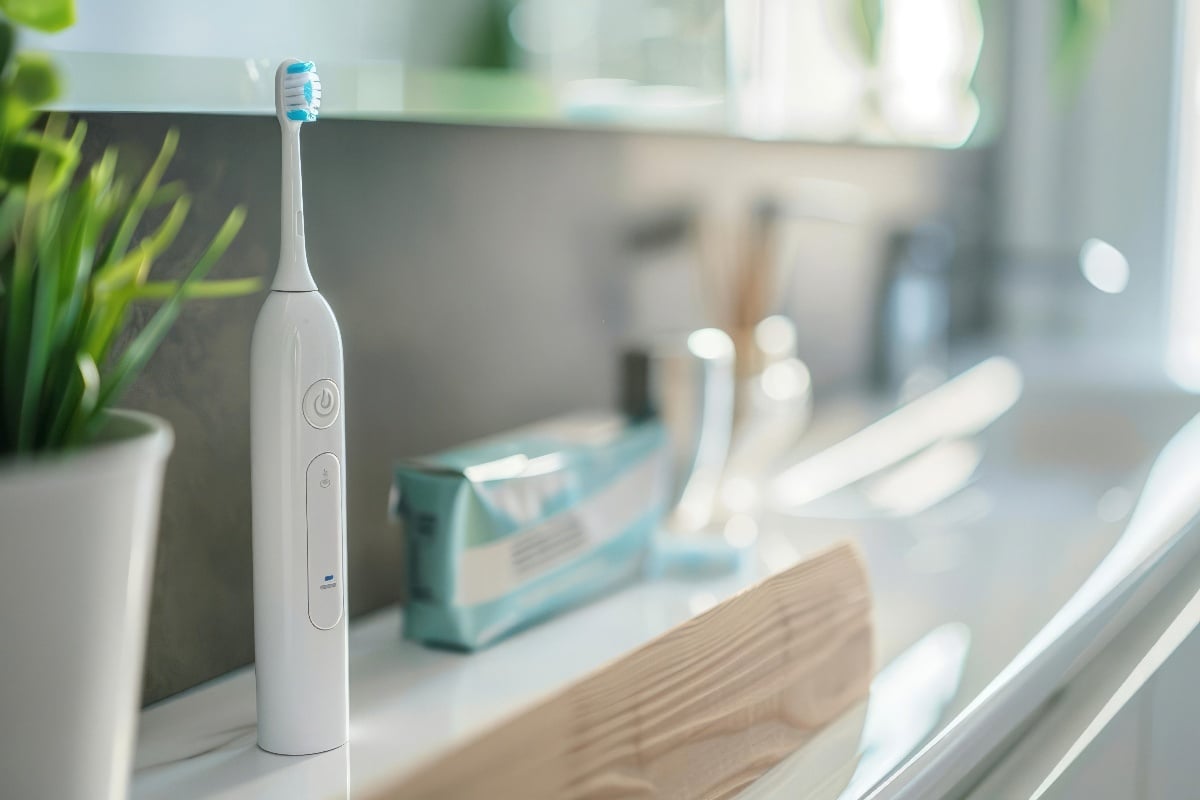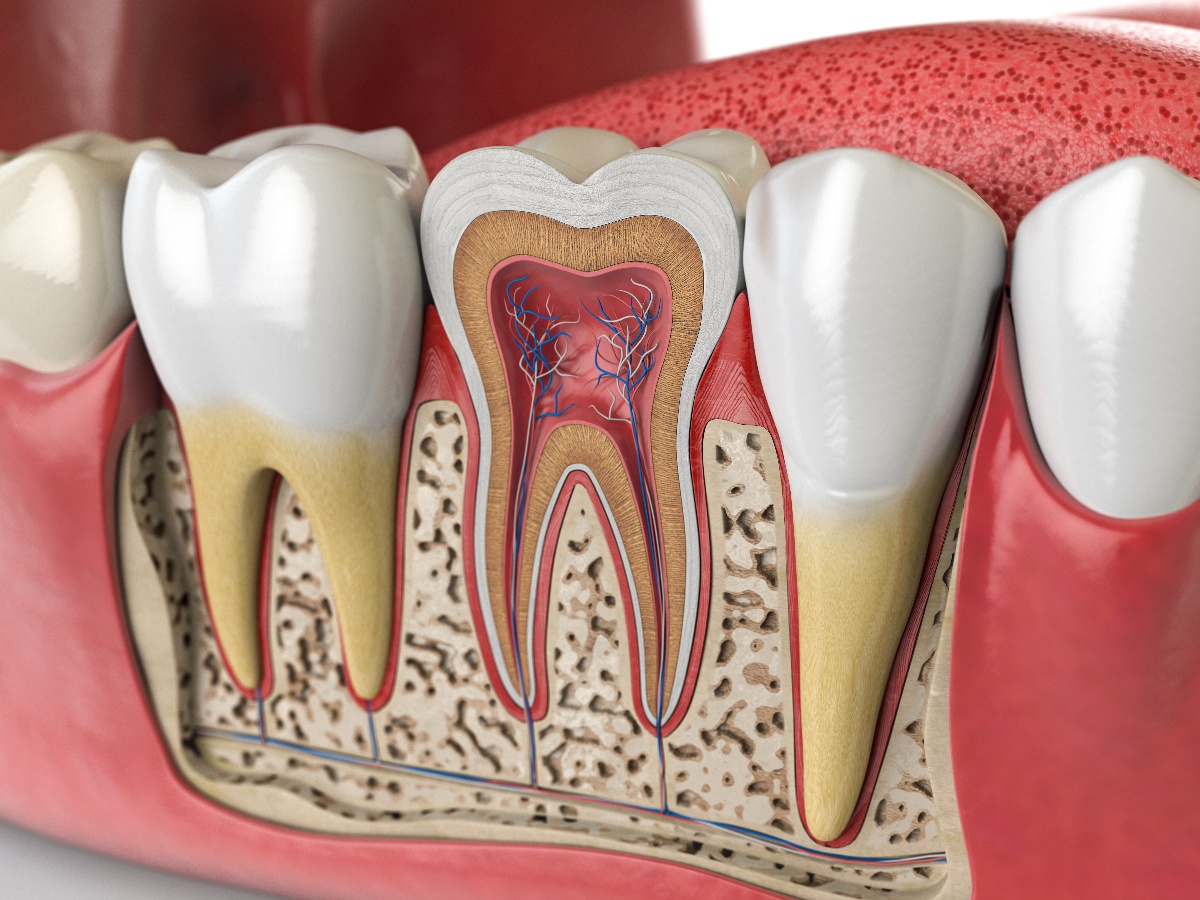Experiencing one or more sensitive teeth affects people of all ages for several reasons. Sensitive teeth can make everyday activities like eating, drinking, and even breathing uncomfortable, leading to a decreased quality of life. While sensitive teeth may not be considered a dental emergency, it should not be overlooked. Many times, prompt diagnosis and treatment can prevent a more serious problem that requires more extensive dental treatment. In this article, we will look at the causes of sensitive teeth and the possible treatments.
What are Sensitive Teeth?
Sensitive teeth (dentin hypersensitivity) can result in sharp or dull pain of short or long duration. Sometimes, it affects a single tooth, while at other times, it feels like every tooth hurts when you experience a stimulus, such as:
- Hot or cold foods and beverages
- Sweet or acidic substances
- Cold air
- Brushing or flossing
- Alcohol-based mouthwashes
Tooth sensitivity is a symptom of an underlying issue affecting your teeth or gums. To understand sensitive teeth better, it is helpful to know the anatomy of a tooth. Each tooth consists of several layers:
- Enamel: The white, hard, protective outer layer of the tooth crown that is visible above the gumline
- Dentin: The softer, porous layer beneath the enamel contains microscopic tubules connecting to the tooth's nerve center (pulp)
- Cementum: A thin, hard tissue that covers the roots of teeth and helps attach your teeth to the jawbone
- Pulp: The soft tissue inside your tooth that contains blood vessels, nerves, and connective tissue
Factors such as worn enamel or receding gums can expose the underlying dentin. When this happens, external stimuli can more easily affect the nerves within the tooth, resulting in sensitive teeth.
Seven Causes of Sensitive Teeth
There are several reasons you can have sensitive teeth, such as:
- Worn tooth enamel: Enamel, the white outer surface, is the hardest tissue in the human body. It can wear down over time due to issues such as aggressive brushing and excessive consumption of acidic foods and drinks. As the enamel becomes thinner, the dentin underneath becomes more exposed, leading to increased sensitivity.
- Exposed dentin: In addition to worn enamel, dentin can become exposed due to gum recession. This occurs when the gum tissue separates from the tooth, exposing the tooth root and the cementum that covers it. Since cementum is not as thick or durable as enamel, it can easily wear away, exposing more dentin and causing sensitivity.
- Gum recession: You can start losing gum tissue due to periodontal disease, aggressive brushing, hormonal changes, and tobacco use. As the gums recede, more of the tooth root becomes exposed, increasing the likelihood of sensitivity.
- Tooth decay or cavities: When you consume sugar, the bacteria in your mouth produce acids. These acids can erode tooth enamel and expose the dentin, causing sensitivity.
- Cracked teeth: Trauma to your teeth, such as from a fall or biting down on a hard object, can cause cracks in the enamel. These damaged areas can expose the dentin, leading to increased sensitivity.
- Teeth grinding (bruxism): If you grind or clench your teeth due to stress or sleep disorders, you can damage the enamel of your teeth and cause tooth sensitivity.
- Dental procedures: Some dental treatments, such as fillings, dental crowns, teeth whitening, professional cleaning, or the placement of crowns or fillings, can temporarily cause tooth sensitivity. This sensitivity usually subsides within a few days to a few weeks following the procedure.
Diagnosing Sensitive Teeth
If you experience tooth sensitivity, it is essential to consult your dentist for a proper diagnosis. During your dental appointment, your dentist will perform a thorough examination to discover the underlying reason you have sensitive teeth and develop an appropriate treatment plan.
The dental examination may include:
- Medical history review: Your dentist will ask you about your symptoms, including when the sensitivity began, the type of pain you experience, and any triggers that seem to worsen the discomfort. They will ask about your oral hygiene habits, diet, and any recent dental procedures.
- Oral examination: Your dentist will closely examine your teeth, looking for signs of enamel wear, cracks, and cavities. Your gums will also be evaluated for inflammation and recession. Next, using a dental instrument called an explorer, your dentist will gently probe your teeth to identify areas of sensitivity and assess the extent of the damage.
- X-rays: Your dentist may take X-rays to get a better look at the internal structure of your teeth and identify any hidden decay or damage that may be causing your sensitivity.
In addition to the general examination, your dentist may perform specific tests to diagnose the cause of your sensitive teeth:
- Air stimulation test: Your dentist will blow a stream of air over each tooth to determine which ones are sensitive. This test helps identify the affected teeth and the severity of the sensitivity.
- Cold stimulation test: Similar to the air stimulation test, your dentist may apply a cold stimulus, such as a cotton swab dipped in ice water, to each tooth to assess sensitivity.
- Heat stimulation test: Your dentist may also perform a test with heat to reproduce the symptoms you have been experiencing.
- Percussion test: Your dentist will gently tap on each tooth with a dental instrument to identify any areas of sensitivity or discomfort that may indicate an underlying issue, such as a cracked tooth or advanced decay.
- Bite test: You may also be asked to bite on a special dental instrument that helps locate small cracks in teeth.
At-home Remedies for Sensitive Teeth
Managing tooth sensitivity at home can be effective in reducing discomfort and preventing further issues. Incorporating specific practices and products into your daily routine can often help alleviate the pain associated with sensitive teeth and protect your enamel and gums from further damage.
- Desensitizing Toothpaste
- Gentle Brushing Techniques
- Fluoride Rinse
- Avoiding Trigger Foods and Drinks
- Maintaining Proper Oral Hygiene
Using toothpaste for sensitive teeth can provide relief. These toothpastes contain ingredients that help block pain from the tooth surface to the nerve.
You can help prevent enamel erosion and gum recession by using a soft-bristled toothbrush and gentle, circular motions. Avoiding abrasive toothpaste is also crucial.
Incorporating a fluoride rinse into your oral care routine can strengthen tooth enamel and reduce sensitivity. Fluoride helps remineralize teeth and provides a protective barrier against acids. Consult your dentist about using fluoride before beginning.
Limiting your intake of acidic, hot, cold, and sugary foods and beverages can help prevent sensitivity flare-ups.
Brushing for two minutes twice daily and flossing can help prevent plaque accumulation and tartar formation, which can cause gum recession and tooth decay.
Professional Treatments for Sensitive Teeth
For more severe cases of tooth sensitivity, your dentist may recommend one or more of the following in-office treatments:
- Fluoride Gel or Varnish Application
- Dental Bonding
- Surgical Gum Grafting
- Root Canal Treatment
Your dentist can apply a highly concentrated fluoride gel or varnish to your teeth’s exposed dentin. Fluoride has been shown to strengthen the enamel and reduce sensitivity by remineralizing the tooth surface.
If your sensitivity is caused by exposed dentin due to enamel wear or gum recession, your dentist may apply a tooth-colored resin material to the affected areas. This process, called dental bonding, helps cover and protect the exposed dentin, reducing sensitivity.
If your gum recession is serious, your dentist may recommend a surgical procedure called gum grafting. During this procedure, a small piece of gum tissue is taken from another part of your mouth and grafted onto the affected area to cover the exposed tooth root and reduce sensitivity.
In rare cases, if your tooth sensitivity is severe and persistent, and other treatments have not provided relief, your dentist may recommend a root canal. This procedure includes removing the damaged or infected pulp from the tooth's inner chamber and sealing it to eliminate sensitivity.
Schedule an Appointment
To learn more about how to prevent tooth sensitivity and maintain optimal oral hygiene, call us or contact us online.





